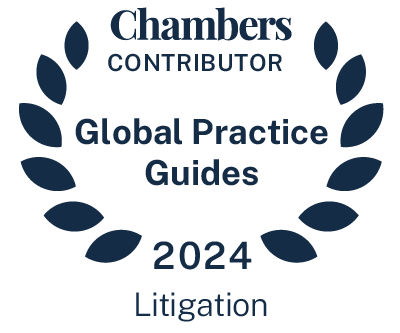White-collar crime
In Denmark, White-collar crime cases are usually investigated and conducted by a special unit under the authority of the Public Prosecutor, the Danish Public Prosecutor for Serious Economic and International Crime (SEIC), generally known as the Fraud Squad, or by the Public Prosecutor’s Department for Serious Economic Crime of the relevant police district. The Public Prosecutor is specialised in conducting cases concerning white-collar crime.
Therefore, you need a sharp and competent criminal defence lawyer/defence attorney to defend your interests.
Cases concerning white-collar crime is a special area of expertise, and the lawyers of our firm have developed a key competence within this area over years of representing clients in matters involving white-collar crime. Our recent work has included the Tvind case, the Se og Hør case, the Amagerbank case, the Farum case and the so-called Corporate Raider cases; these are just some of the cases in which our lawyers have served as lawyer for the defendant.
If you become involved in a matter concerning white-collar crime, it is essential to choose a defence lawyer who understands the commercial and financial aspects, and, at the same time, is familiar with all legal particularities concerning the case in question. It is important that you do not talk to the Fraud Squad until your defence lawyer has reviewed your case and discussed it with you. You have the right to refuse to answer questions from both the police and tax authorities.
When dealing with white-collar crime cases, it is an essential precondition that the defence lawyer has a high level of expertise regarding all aspects of business, including the understanding of accounting, corporate law, tax law and VAT legislation.
Some of the lawyers of our firm are court-appointed counsel, i.e. appointed by the Danish Ministry of Justice to deal with criminal cases, and criminal law has always been a natural part of our firm’s case portfolio.
White-collar crime covers a wide range of cases concerning crime of a financial nature. The classic white-collar crime cases are typically cases regarding:
- Embezzlement, fraud, forgery, breach of trust, fraud against creditors, and bribery.
White-collar crime also includes cases concerning financial crime within areas regulated by special legislation fx:
- Tax fraud
- VAT fraud
- Market manipulation & financial matters
- Insider dealing
- Money-laundering
- Antitrust and competition matters
- Secret commission, commission & bribery
Tax criminal law
The topics tax fraud and VAT fraud are described and dealt with under the heading Tax criminal law. Tax and VAT fraud is a form of financial crime, the purpose of which being the avoidance or reduction of tax or VAT liability.
Already while the case is pending before the Danish tax authorities, you are entitled to a defence lawyer of your own choosing appointed (paid) for you.
It is important that you do not talk to the Fraud Squad or the tax authorities until you have discussed the case with a defence lawyer specialising in cases concerning alleged tax or VAT avoidance. It may be preferable not to make any representations, however, in certain circumstances, it might be of benefit. Whether to make any representations, should always be discussed with a defence lawyer who has had the opportunity to familiarise himself thoroughly with your case to avoid any misunderstandings.
Often, many circumstances regarded as suspicious by the authorities can be justified on rational and commercial grounds, and it is essential that this is understood by the authorities. Many cases are withdrawn because a dialogue with the authorities regarding the case is initiated at an early stage.
We render advice to business clients on corporate matters, and we represent clients in common tax and VAT proceedings before the Danish Tax Appeals Agency, the National Tax Tribunal, and the courts. Often, the Public Prosecutor and the tax authorities do not have the necessary experience and knowledge in the field of commercial law to understand when there is a commercial reason for a transaction. We can explain that to them.
Market manipulation and financial matters
Cases concerning market manipulation is a new type of cases which has only emerged in recent years following the focus on the financial markets, the banks, and the whole of the financial system after the financial crisis.
We have represented clients in various proceedings concerning market manipulation.
Fx, we have represented members of the bank’s management in many of the Danish banking cases, the Roskildebank case, the Amagerbank case and the Eik-Bank case. We have worked intensively with the financial legislation, and thus, we have acquired in-depth understanding of financial issues and aspects.
This means that we have in-depth knowledge of the regulatory framework within this field, which is necessary to match the Public Prosecutor in such cases.
Insider dealing & financial matters
The prohibition on insider dealing and disclosure of insider information extends to anybody who is in possession of insider information. However, there are by no means always facts which could give rise to criminal proceedings or sanctions in this type of cases.
In cases concerning insider dealing, the authorities often claim that the defendant has gained a profit to the benefit of himself or a third party by trading securities himself or through the intermediary of a third party (missing trader) based on insider information at a time when this information was not yet known to the market.
We are representing members of the bank’s management in the Danish banking cases, the Roskilde Bank case, the Amagerbank case and the Eik-Bank case, all civil proceedings.
We have worked intensively with the financial legislation and have in-depth understanding of financial issues.
This means that we have in-depth knowledge of the regulatory framework within this field, which is necessary to match the Public Prosecutor in such cases.
Money-laundering
The objective of the Danish Anti-Money Laundering Act is to combat the laundering of proceeds and the financing of terrorism. Because of this, a number of undertakings and businesses (primarily within the den financial sector) and private persons (fx accountants) are obligated to notify the authorities if they become suspicious that their customers are involved in money laundering or terrorist financing.
Money laundering means securing the proceeds of a criminal offence, fx undeclared work, drug-selling, embezzlement, tax fraud, etc.
There have been various proceedings against foreign currency exchange offices which have participated in the exchange of cash and among other things have not obtained verification of the identity of the persons they have assisted in the exchange of cash and transfers abroad.
We have represented clients in a number of cases concerning money-laundering. Both natural persons and legal entities (companies) can be charged and sentenced.
Antitrust and competition matters
A cartel is an illegal agreement between firms designated to limit competition. Cartel activities are generally difficult to detect because the cartel participants have a mutual interest in keeping the agreement secret. Cartel agreements are usually made to fix prices, limit production, share markets and coordinate bids.
Cartel participation is a serious violation of the Danish Competition Act, and a fine may be imposed on a company which has participated in a cartel with other companies, including the company’s managing director or the chairman of the board of directors. Such fines may exceed DKK 20m.
Persons who participate in a cartel agreement, or invite others to join a cartel, or in any other way participate in a cartel, may also be charged and sentenced
We examine and advise on cartels, furthermore, we can assist you in connection with meetings at the Danish Competition and Consumer Authority.
Secret commission, commission and bribery
Indictments regarding the receipt of illegal commission (secret commission) or bribery usually occur in large companies or public institutions.
Often, it is an employee or a senior executive (procurement officer) who is charged with having received a cash amount, an article, a discount or some other private financial advantage in return for having bought the products or services at a higher price than the price which would normally have been agreed between the parties as ”payment” for buying products or services from a specific supplier.
The other way round, an employee may be charged with having sold the company’s products at a price which is too low and receiving a cash amount, a product, or a service in return.
Many activities regarded as suspicious by the authorities can often be justified on rational and commercial grounds, and it is essential that this is understood by the authorities.
We have represented clients in several proceedings concerning secret commission, commission, and bribery.







